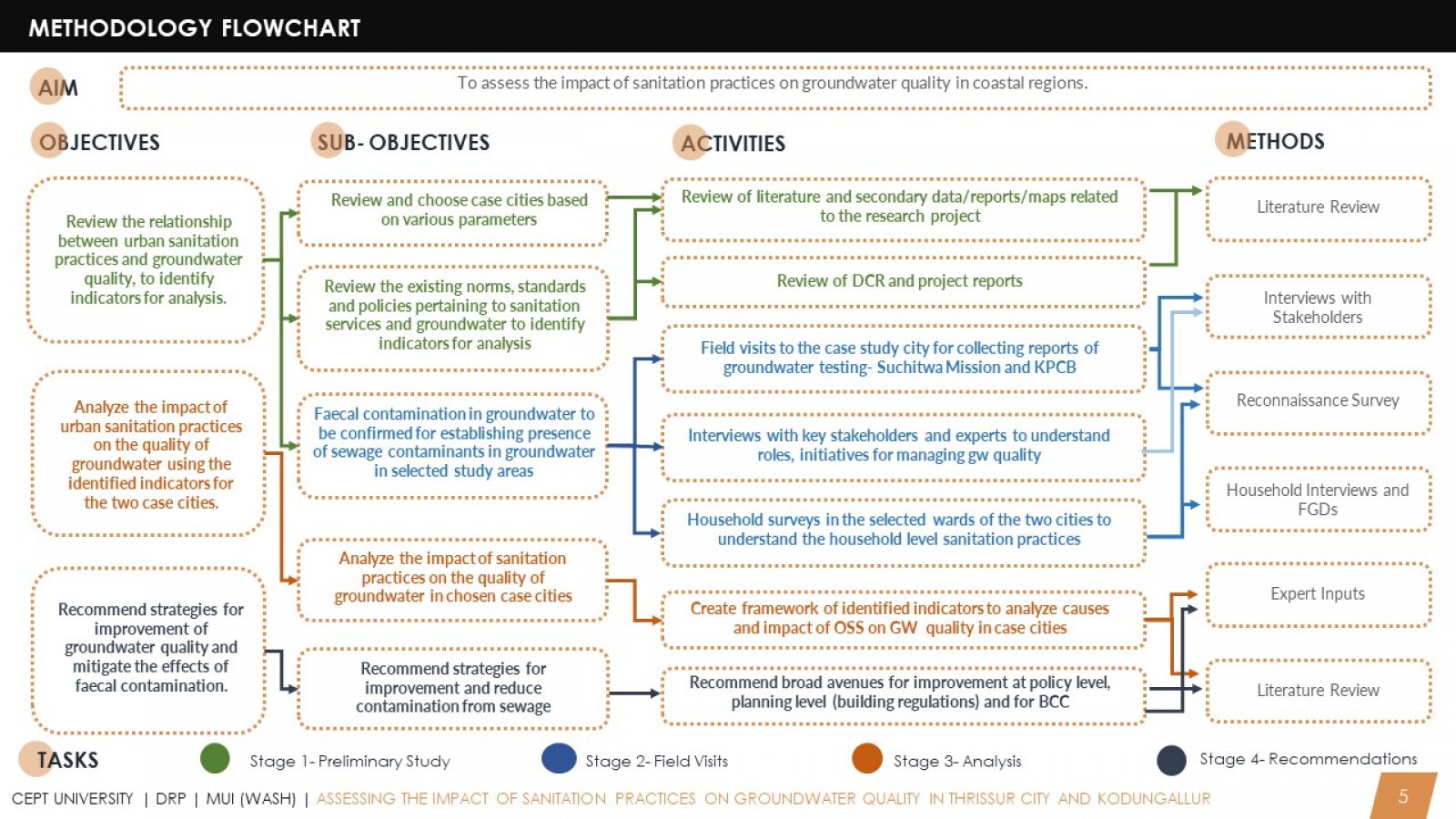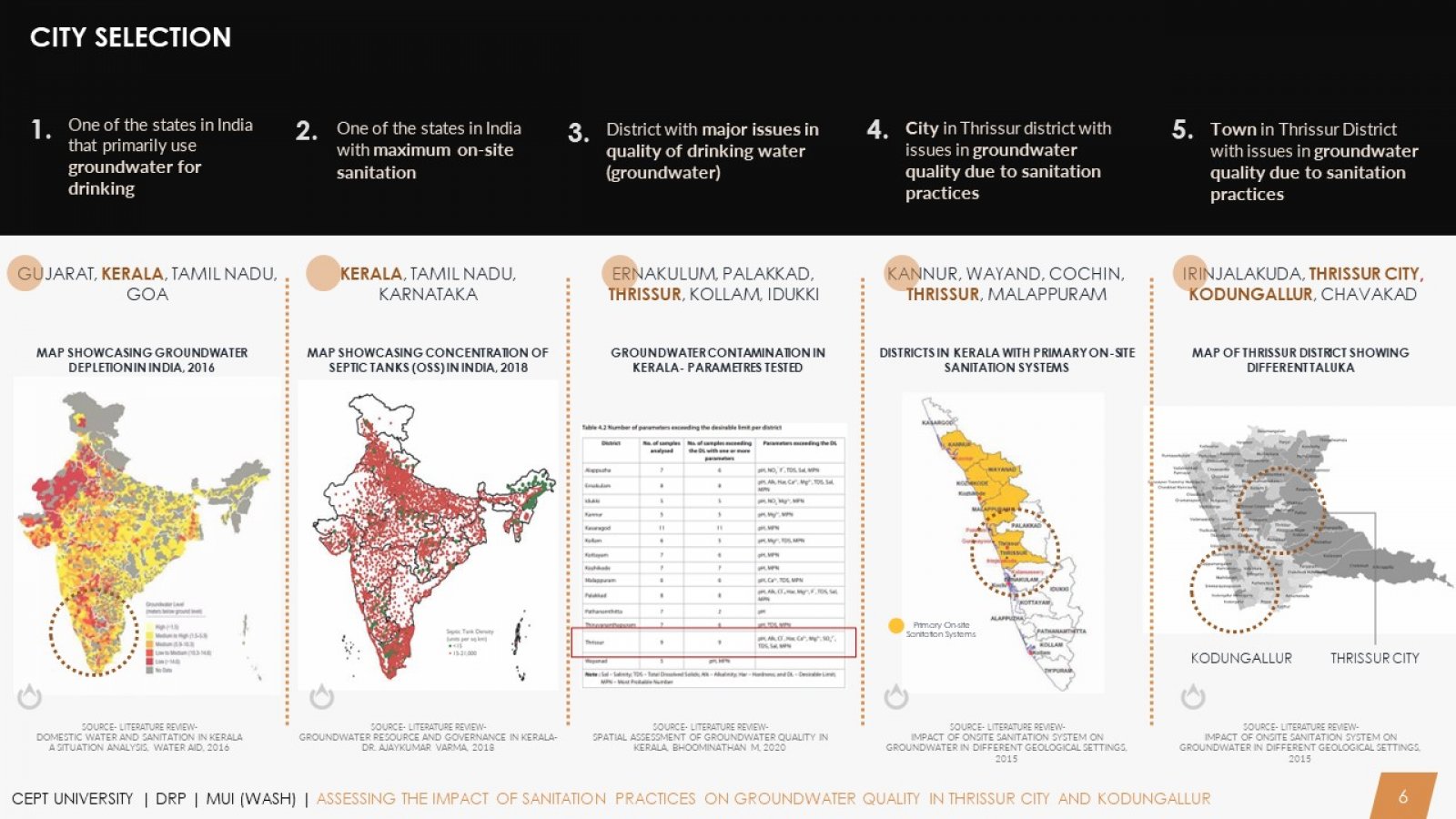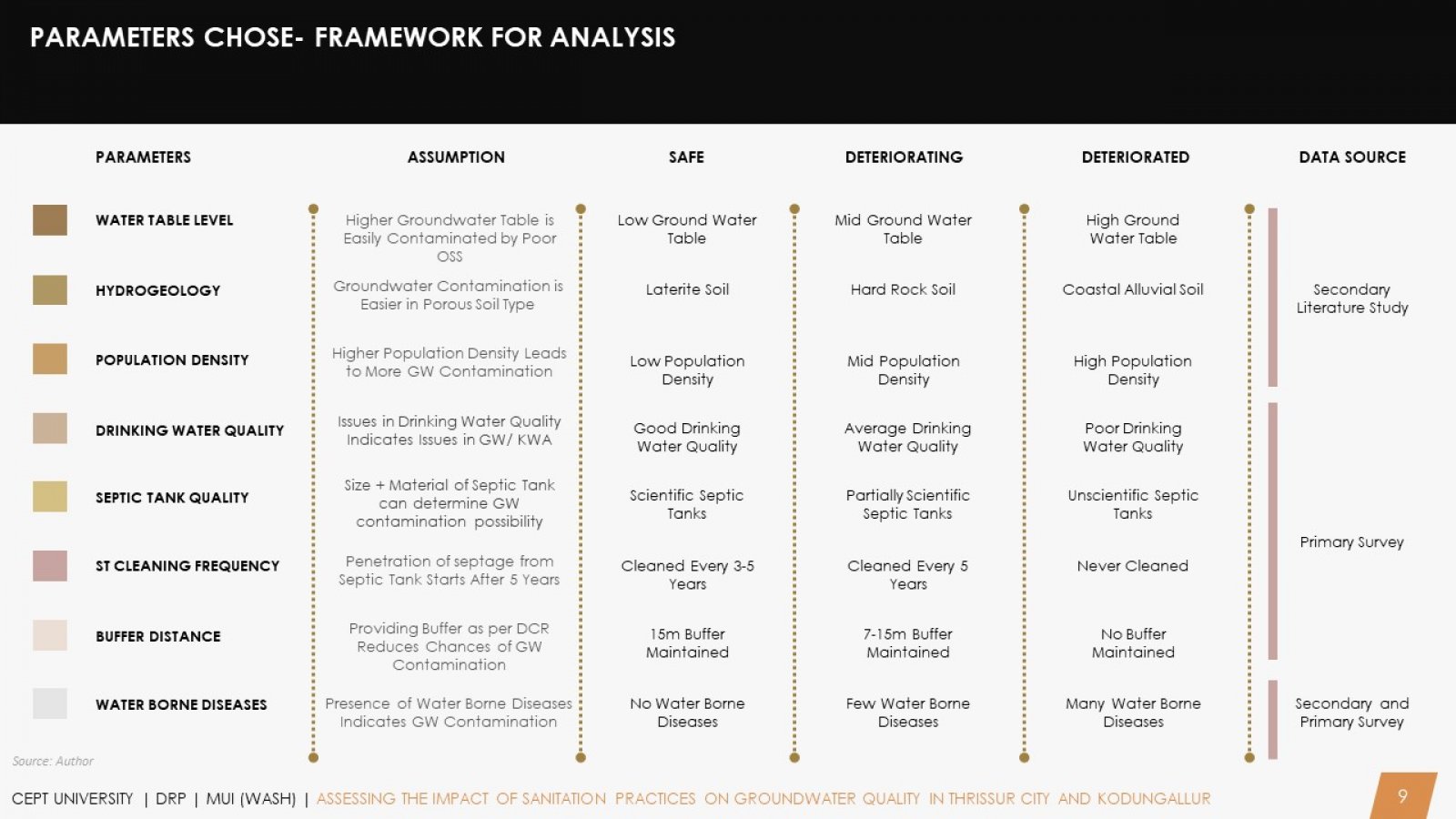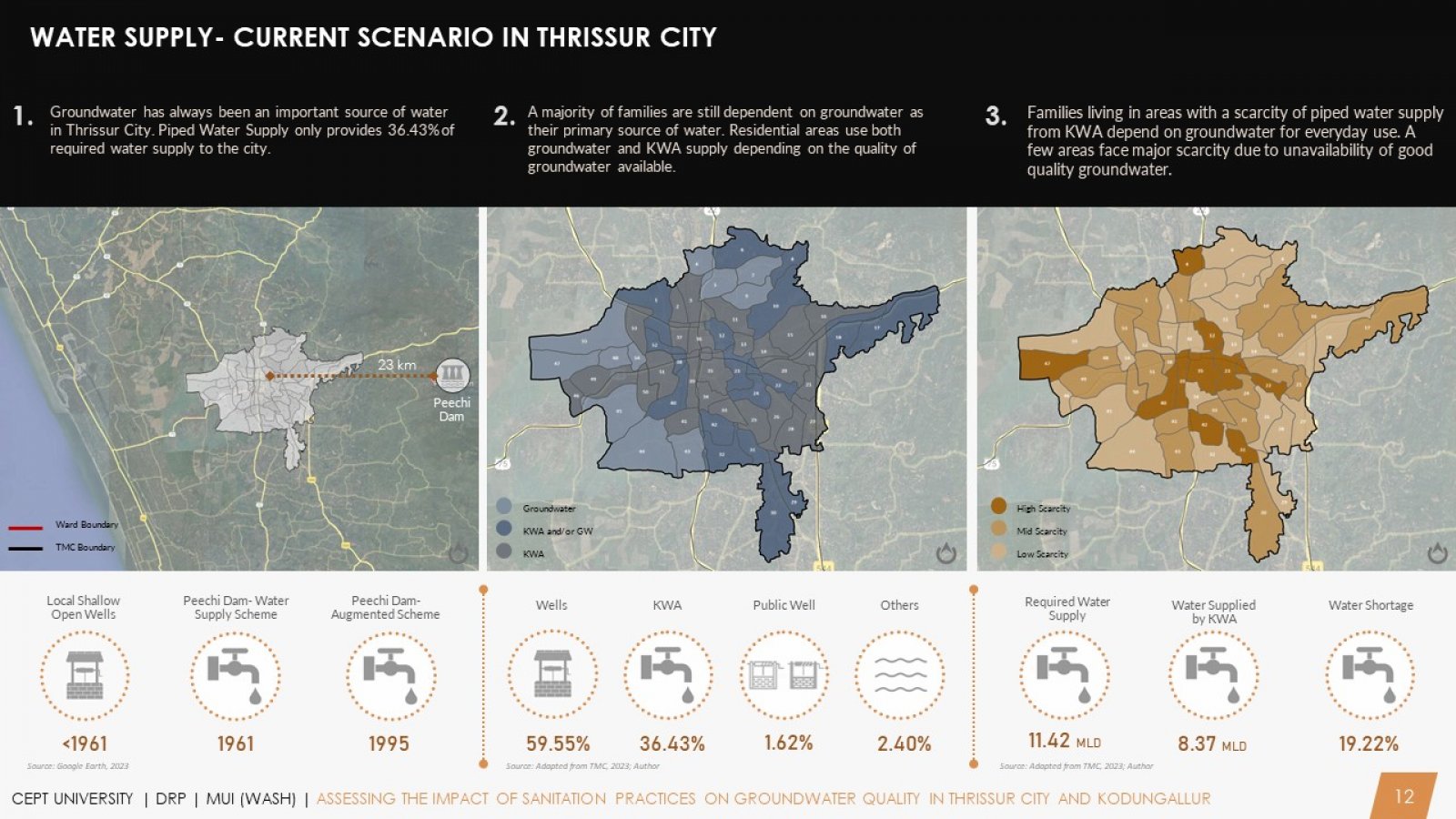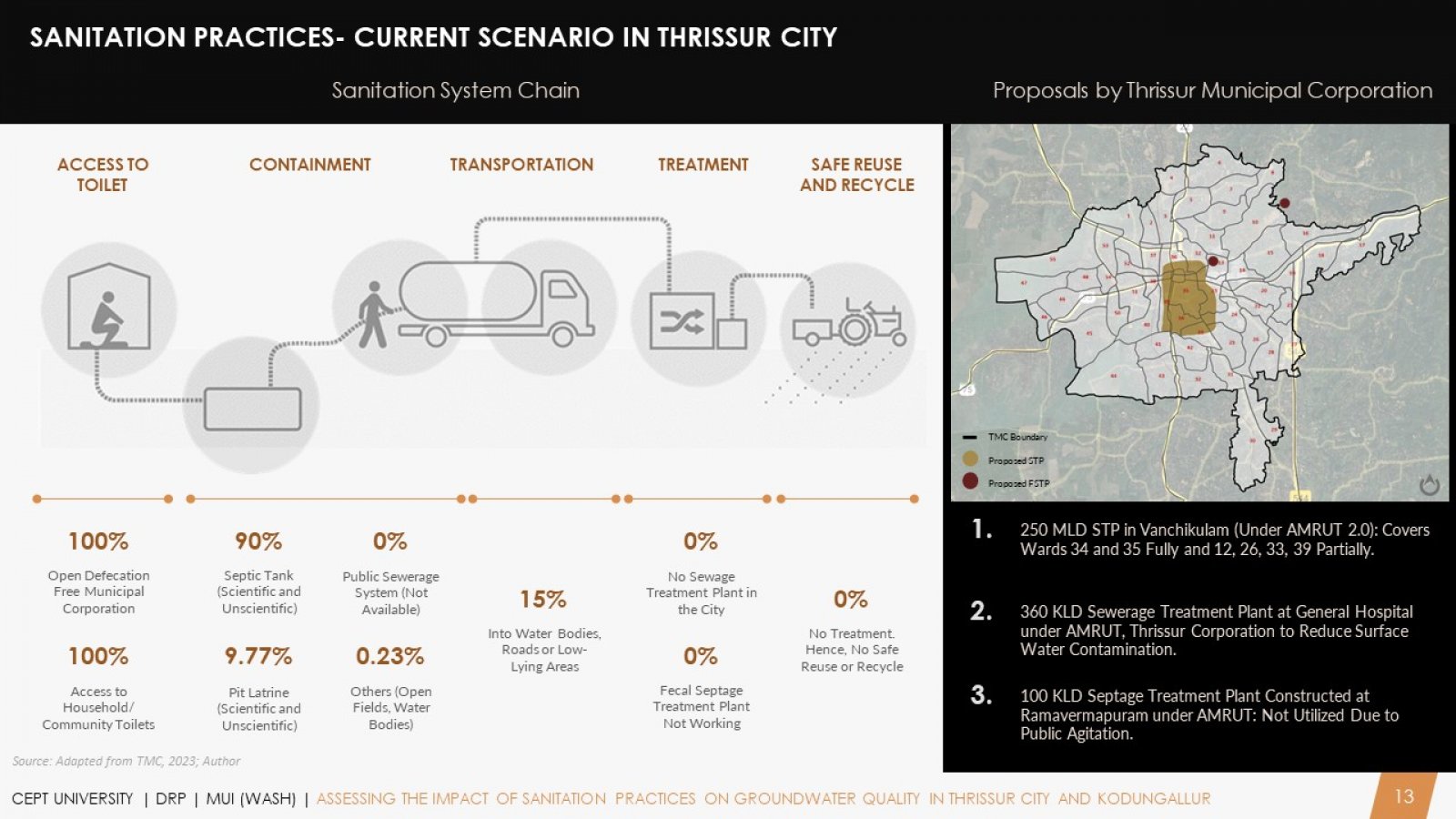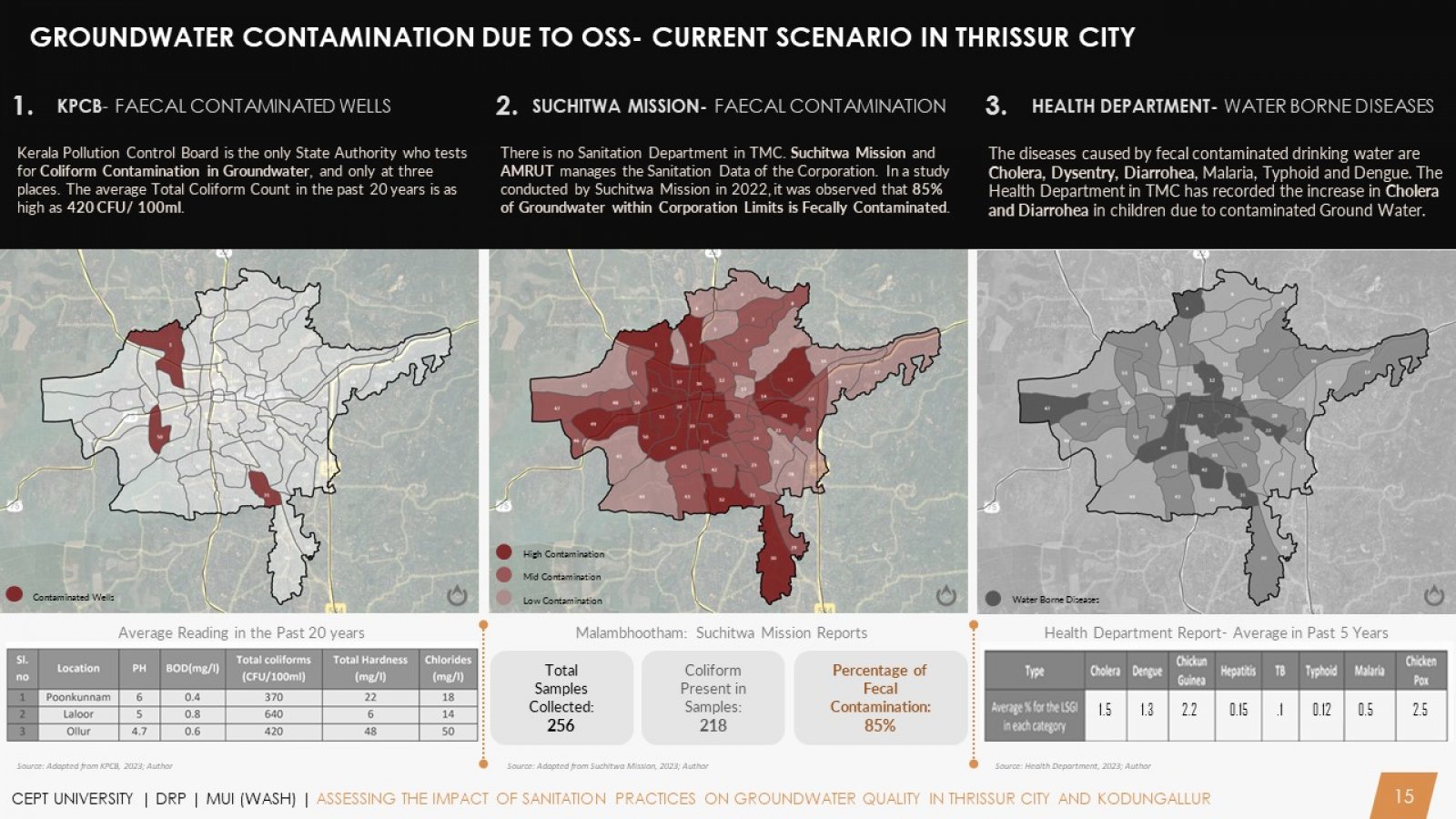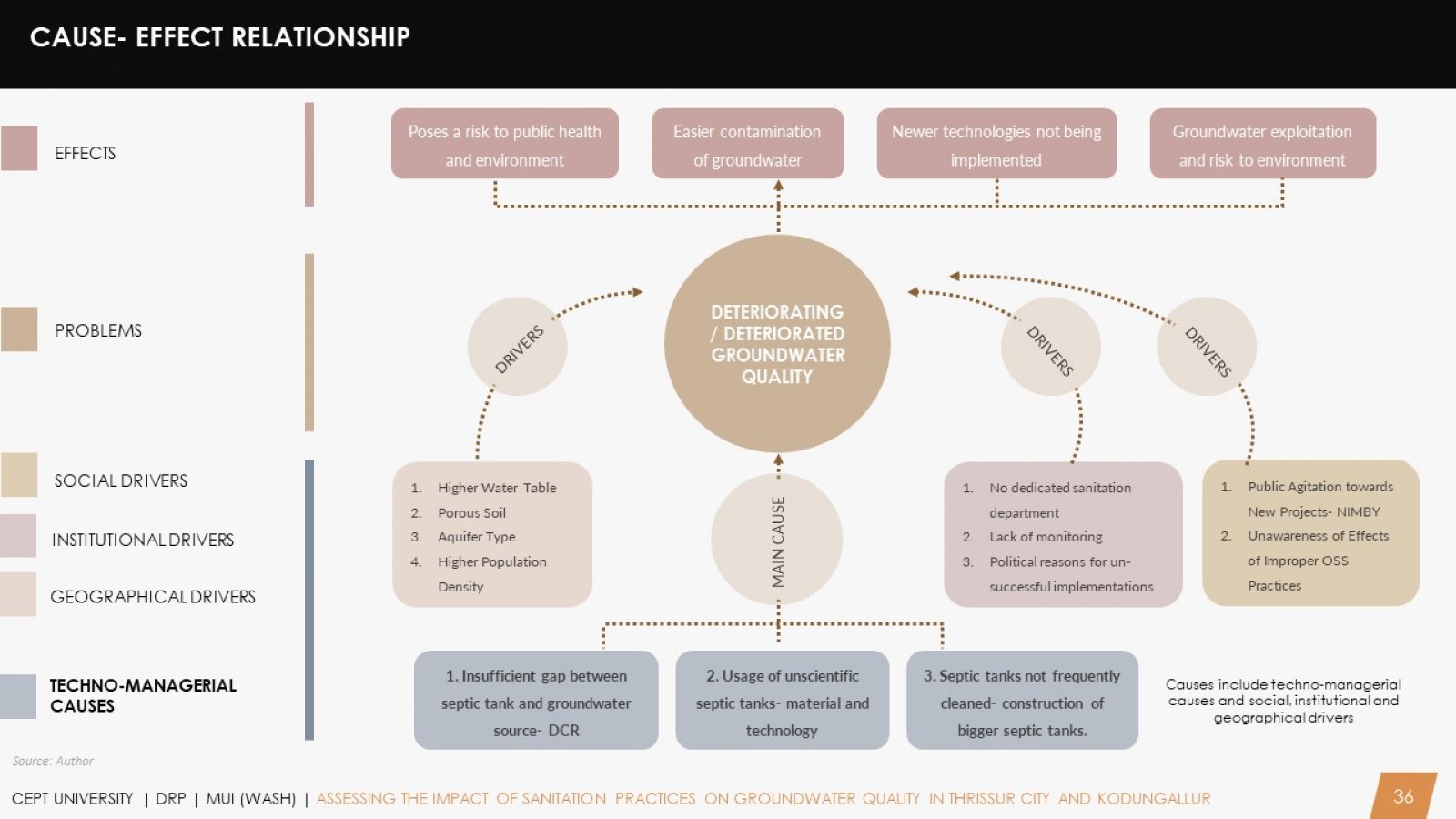Your browser is out-of-date!
For a richer surfing experience on our website, please update your browser. Update my browser now!
For a richer surfing experience on our website, please update your browser. Update my browser now!
Groundwater, a major source of drinking water globally, is affected by a range of human-induced and natural factors. Particularly dense urban settlements practicing poor on- site sanitation pose greater threat to the groundwater table due to faecal contamination. Coastal areas with high groundwater table and alluvial soil are particularly at higher risk of faecal contamination. The aim of this research is to assess the impact of urban sanitation systems and practices on groundwater quality in such coastal regions. The two case cities from Kerala selected for this research are Thrissur Municipal Corporation and Kodungallur Municipality. Both the cities fall within 30 kms distance from the coastline. Water quality reports by Suchitwa Mission (2022) and Kerala State Pollution Control Board (2021) showed high levels (an average of 420 CFU/ 100ml in the past 20 years) of faecal contamination in groundwater. To assess reasons further, a total of 162 household surveys were conducted in the selected wards of the two cities to understand household level sanitation practices (scientific / unscientific disposal). Additionally, interviews with key stakeholders and experts were carried to understand their roles, initiatives for managing groundwater quality. A comprehensive scoring was done for each selected ward to categorize its groundwater condition as safe, deteriorating, and deteriorated stages. The findings from the analysis reveal various techno managerial, institutional, geographical, and social causes that impact urban sanitation practices in coastal regions, which in turn contaminate groundwater. The study concludes with broad avenues for improvement at policy level, planning level (building regulations) and for behaviour change communications.

